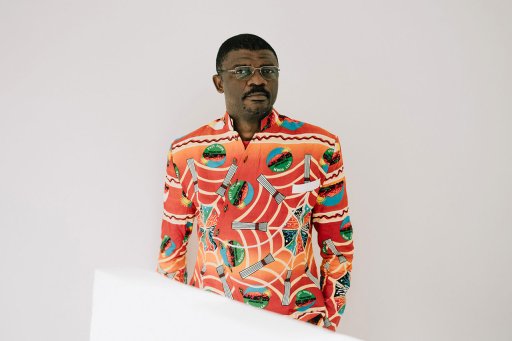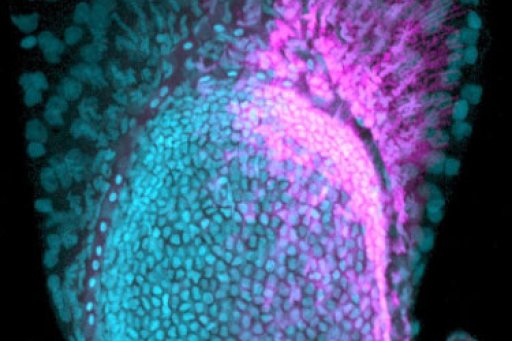Every two weeks, a current scientific topic is explored by a researcher from the Collège de France.
Long seen as the study of human societies in their cultural and social dimensions, anthropology is expanding into a new approach, to reflect on the effects of life on human collective organizations. By analyzing how societies conceive of and interact with life processes, the anthropology of life opens up to questions about extraterrestrial life, and offers a fresh look at how humans envisage their place in the universe.
Interview with Perig Pitrou*, anthropologist at the Laboratoire d'anthropologie sociale, Institute of Civilizations, Collège de France.
The anthropology of life is a recent field of research. Its aim is to study the biological processes expressed in social and cultural representations. According to Perig Pitrou, " All human societies share a common experience of vital phenomena such as growth, reproduction, aging and death, but they develop specific interpretations and practices ". This new field of research aims to compare different conceptions of life around the world, whether derived from traditional or scientific knowledge. " Theanthropology of life aims to compare different conceptions of life that human societies will forge from a common primary experience ", adds the researcher. According to him, in their interactions with living things, as in agriculture for example, humans are aware that they cannot totally control the growth of plants, which depends on a power that they seek to domesticate. Thus, in the rituals of Amerindian populations, notably the rites of the Mixe of the Sierra Norte de Oaxaca in Mexico - where he carried out ethnographic surveys -, sacrifices at the top of the mountain are justified by the need to visit an entity named " He who makes live", capable of using " the rain ", " the wind " or " the earth ", to ask him for help in growing corn.
After studying these rituals, Perig Pitrou then contrasted them with contemporary research into biotechnology and medicine, where life is redefined in the laboratory.
From laboratory ethnography to exobiology research
Scientific advances have led to the extension of the field of anthropology into previously unexplored territories, notably the sites of scientific knowledge production, such as laboratories, universities and institutes. Since the 1980s, laboratory ethnography has focused on the construction of scientific knowledge, notably through the analysis of researchers' practices, the organization of their collective work and the process of elaborating their theories. Perig Pitrou underlines the importance of this approach in the context of biological and space research :" Exobiology is not only biology that questions the possibility of finding life on other planets, it also asks how life emerged on Earth. " This reflection leads him to collaborate with scientists to analyze the cultural implications of discoveries in exobiology, a field that aims to identify possible extraterrestrial life forms. " The question is not only whether there is life elsewhere, but also how humans are preparing to interpret and integrate it into their systems of thought ", he asserts.
The anthropologist also highlights how space exploration is transforming our conceptions of life on our own planet. For example, the study of exoplanets and extreme terrestrial environments, such as hyperthermophiles, organisms living close to a source of high temperature on the ocean floor, is fuelling hypotheses about life in the universe. He points out that the discovery of new scientific objects, such as cells cultivated in vitro or organisms adapted to extreme environments, is redefining the boundaries between the living and the non-living. His work is part of international projects such as the Origins program , led by Prof. Alessandro Morbidelli, which aims to explore the conditions of habitability on other planets.
Anthropology applied to space exploration
Another aspect of Perig Pitrou's research concerns the anthropology of space and the conditions of human life beyond Earth. As part of an international partnership between PSL University, University College London, the Maison française d'Oxford and Collège de France, he is involved in the Off Earth Atlasproject , which uses social science methods to understand the infrastructures built to enable terrestrial life to sustain itself in an extraterrestrial environment. In this way, the anthropology of life is not limited to analyzing terrestrial societies, but is also interested in the possible futures of humanity in space.
With this in mind, Perig Pitrou is collaborating with teams of researchers working on the International Space Station to study the management of human relations in extreme conditions. The anthropology of techniques and everyday life in weightlessness sheds new light on the challenges of a lasting presence in outer space.
By going beyond the classical frameworks of anthropology, Perig Pitrou highlights the ways in which human societies construct meaning around biological phenomena, opening up new perspectives on our relationship with living things and our place in the universe.
*Perig Pitrou is a researcher in anthropology at the Laboratoire d'anthropologie sociale of the CNRS, EHESS and Collège de France, and at the Maison française in Oxford.









